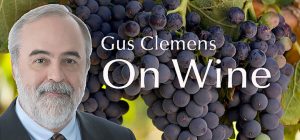No one doubts alcohol abuse is a bad thing. But, how do you define “abuse?”
During the COVID pandemic a coterie of alcohol critics define abuse very tightly. Call them neo-Prohibitionists. Unlike booze banners a century ago, neo-Prohibitionists base their bias on health rather than morality.
Neo-Prohibitionists bemoan we are drinking far more booze during the pandemic. That is false. With restaurants and bars closed or occupancy restricted, we are drinking less. We are drinking more at home, but sales and tax records show overall we are drinking less.
If you are an American, there is one-third chance you do not drink alcohol at all. The U.S. has one of the highest abstention rates in the industrialized world. Dread of pandemic alcohol abuse does not even apply to some 115 million of us. And if you principally drink wine, consider countries with highest rates of wine consumption have lowest rates of alcoholism and some of the longest lifespans.
One overwrought claim is drinking a bottle of wine is the same as smoking 10 cigarettes. Another alleges drinking wine with dinner constitutes binge drinking. Some contend wine consumption should be limited to a single glass a day at most. Good luck with all that.
Neo-Prohibitionists bewail alcohol-related diseases kill more people than drug overdoses. While true, millions upon millions of people legally consume alcohol. Alcohol drinkers are an immensely larger cohort than drug abusers. Of course there are more alcohol-related deaths. Simple math.
Ah, but what about drunk driving? Alcohol-related automobile accidents have decreased 50 percent since 1985. Don’t drink and drive campaigns work. And during the pandemic, more alcohol consumption has been in the relative safety of our homes.
While neo-Prohibitionist Cassandras decry doom and disaster, other scientists note positive benefits of moderate wine and alcohol consumption. Those studies drive neo-Prohibitionists crazy. In the end, you get to decide. If you choose wine, tasting notes follow.
Tasting notes:
• Justin Vineyards & Winery Rosé Central Coast 2019: Superb aperitif. Clean, refreshing, excellent texture, excellent acidity. $17-22 Link to my review
• Mohua Pinot Noir Central Otago, New Zealand 2017: Great fruit; mild, tasty tannin; good acidity, delicious. $18-24 Link to my review
• Aperture Cellars Alexander Valley Cabernet Sauvignon 2017: Admirable restraint in tannin, oak, but with solid undertow of rich Alexander Valley fruit. $70-75 Link to my review
Last round: Playing in the yard after two glasses of wine, I wondered why the Frisbee kept looking bigger and bigger. Then it hit me.

